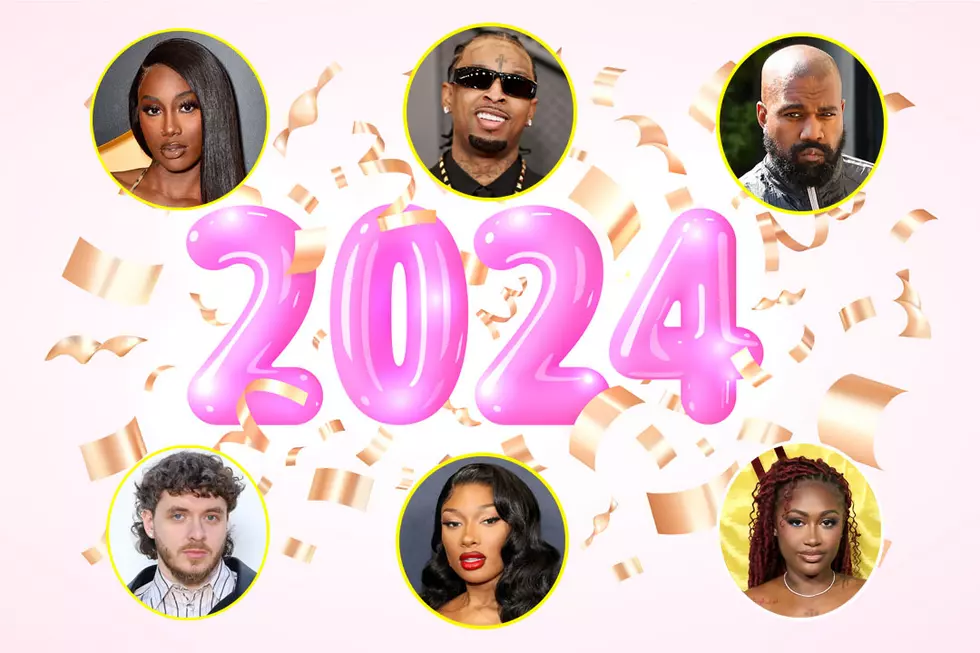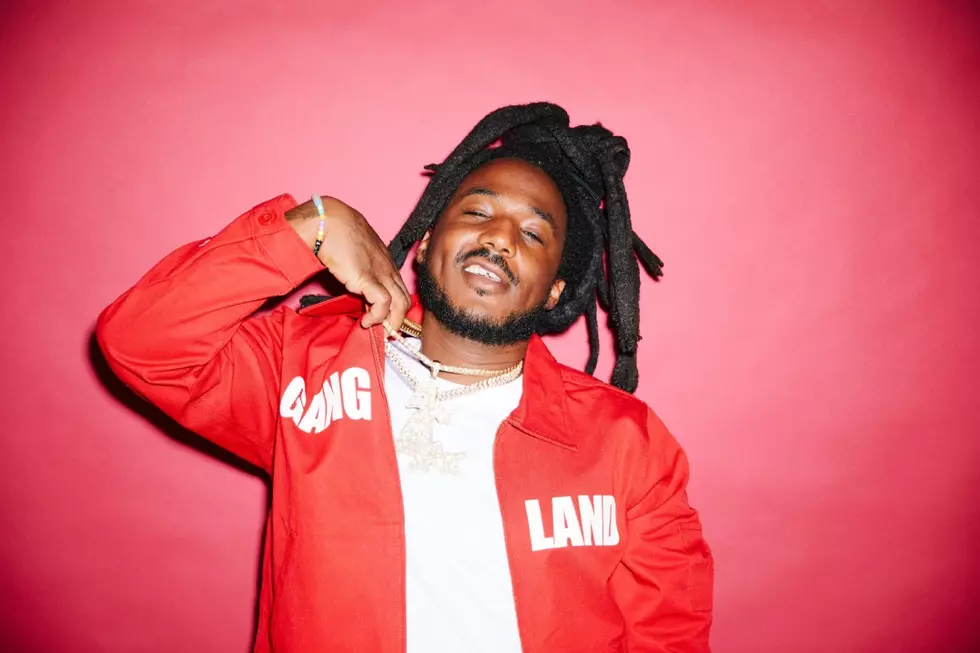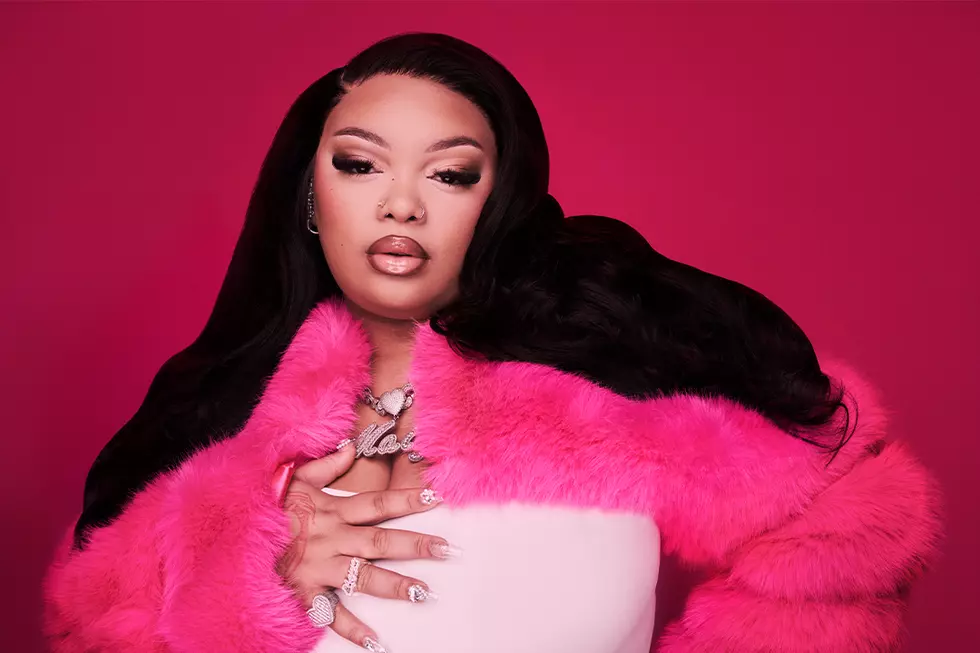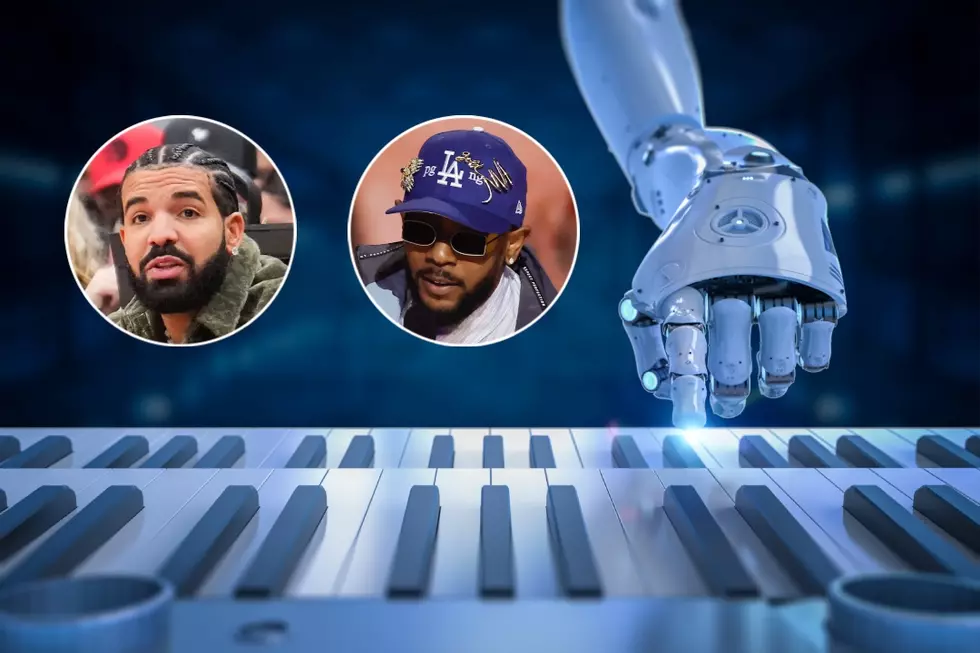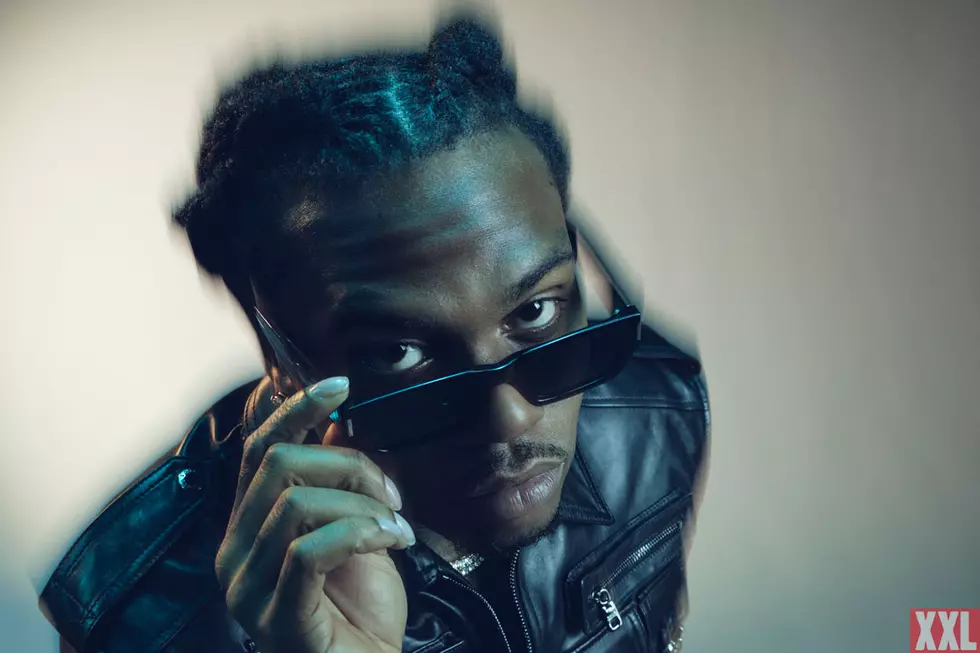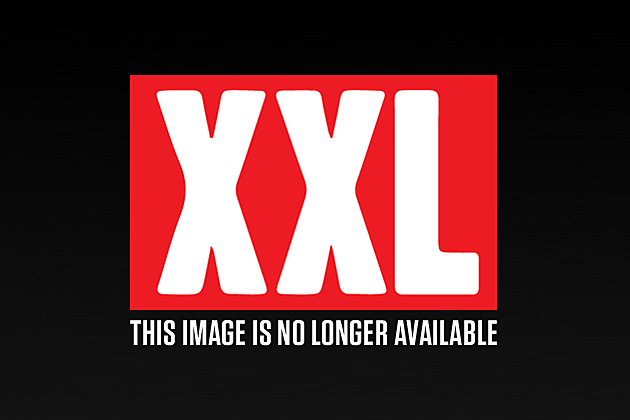
B.o.B Is Producing More On ‘No Genre 2′
Yesterday, B.o.B released his new mixtape No Genre 2. A few weeks prior to that, the Atlanta rapper/singer has been dropped incredible previews from the project like “Mission Statement” and the Sevyn Streeter-assisted “Swing My Way.” In the mixtape circuit, Bobby Ray is considered a veteran with over 10 releases that have bolstered his notoriety. The No Genre series is his landmark tape showcasing his various sides and styles early in his career. Just a day before dropping the sequel, we spoke to B.o.B about creative process of No Genre 2, the meaning behind no genre, and his thoughts on Iggy Azalea’s success so far.—Eric Diep
XXL: How excited are you to drop the tape?
B.o.B: From a scale from 1 to 10—turnt. For it to be a sequel, we wanted to do it differently. We making like a video mixtape, so we shot all the videos before we even announced the release of it.
Where did that idea come from?
Just a way to freshen it up. I’ve done well over 10 mixtapes my whole career so I wanted to mix it up and do it differently. The video mixtape idea came up—it was a no brainer.
Cloud 9 was the tape that pushed you into the mainstream. What did No Genre do for you?
No Genre was the mixtape like...you know I dropped it after The Adventures Of Bobby Ray. When I put the mixtape together, I wasn’t even really thinking too much about it. It was just like, “Cool. This is some dope records that I put out that I’ve been working on.” Records that didn’t make the album. So, I was just like whatever. The response to it was like an album. A lot of people feel that it should have been my first album. I figured that I revisit the subject in a new way.
How did No Genre stamp your place in hip-hop?
Records like “Beast Mode.” Records like “Dr. Aden,” Records like, “Not Lost.” “Shoot Up The Station.” I really took all my favorite shit. At the time, it just worked. It just flowed.
What’s the mindset now for No Genre II?
The second one, I am doing a lot of more production on it. Lately, I’ve been producing a lot more lately. It’s showing growth. It’s showing the growth of my train of thoughts. Honestly, it’s just different. I’m always going to do the same thing. That’s something I don’t allow myself to do. I’m never going to the same pool of thoughts that I’ve always had. I’m never gonna feel the same way that I did, but I’ma always have the same approach to my music. It’s always going to have my signature in it and my sound in it, and my soul in it. I really don’t have to do anything but just do it and record it and see how it come out.
How have you learned not to stay in one category of music or one genre? You’ve been boxed in as an MC, a pop star and a trap rapper.
As an artist, you gotta love what you are doing. No matter what the response may be or what people may say or how people may feel, you just gotta do what you love to do. Before Underground Luxury, I wanted to make club music. I wanted to just turn up. I had to let myself do it regardless of what anybody would say. Obviously people who were saying my pop side or my rock side or whatever side. Some of my more hippy side...that wasn’t how I felt at the time. I think in general it’s a well-blended, well-put together project. It has a balance. Honestly, I gotta be balanced myself before the music can have a balance.
What wave are you on now? Whatever comes naturally?
Now, you know it’s funny because with Strange Clouds, I thought I was doing then what I’m doing now. On Strange Clouds, I was trying to show people my hip-hop, lyrical/club side, but still have pop records. I mean, it was a great album. Honestly, you could of put a lot of songs off of Strange Clouds, you could put those on Adventures Of Bobby Ray and it would have been just as dope. But, it was just something about that first moment when you put out the music, but I really just had to experience and go through the different phases and different moods and emotions and all that.
How do you feel about the response of Underground Luxury?
Underground Luxury was for me. I really didn’t care what the response was going to be. I really didn’t pay attention to it. I just wanted to make this shit and just put it out and perform it. And just do what I want to do.
The album sales don’t concern you.
Yeah, exactly. Beyonce dropped her album around the same time too. [Laughs] I kind of have that philosophy on the music industry. When you are an artist, it’s not like the rookie that gets drafted. I am not a rookie at all. The concept of a rookie getting drafted into The League, you gotta play with the people that’s been on the field for 11 years. This your first year, so it doesn’t matter what the difference is or the difference in caliber of the artist. It’s still about the music.
Most rappers aren’t trying to be innovative or try something new. But you are trying to be different. Has that style been difficult for you to sustain in your career?
There is always going to be good music and bad music, which is why there is no genre. It’s either good or bad. In the midst of it all, some things are all about timing. I think when I put out my first album and “Airplanes” was out. It was something about the timing. How people felt and that fucking song, it just stuck to people. That song, for me, I had a different experience with that song than somebody who was listening to it, the person who didn’t make it. Everything is just about timing. Some songs kind of have this moment in time culturally to sustain others and others don’t. It’s not really just about good and bad. There are songs that have been kind of bad that have been hit smashes. Just because of the timing of it.
Nobody has ever known, “Man, this shit is gonna be a fucking smash.” I don’t even think Jay Z and Kanye knew how big “Niggas In Paris” gonna be. Maybe they did, but typically you never know. When I recorded “We Still In This Bitch,” I didn’t know it was gonna be a hit that it was. I was trying to mixtape it.
What is your recording process these days? Are you constantly trying to make radio hits?
Not really, man. I gotta like the song. I really gotta like the song. I think luckily for me, I can make a song that sounds like it should be on the radio. I still have to let myself make it. I had to really pave my own lane. A lot of what I can do now, I had to pave it. It wasn’t a role or a route I could just GPS. I had to really fucking pioneer it.
What’s the biggest influence behind No Genre II?
Honestly, I’ve just been in my own world because mostly what I’ve learned is from working with other people. Obviously, I am aware of what songs are out there. I like stuff to just catch me. I don’t like dig deep and look up under every rock and every house to find new shit. I just let whatever finds me, finds me. I’ve really just been producing a lot of stuff myself.
I got in the studio with Ty Dolla $ign—me and Ty. This was the time when I put a verse on his mixtape. We did “Paranoid” and we did this other song that we never put out. This was all like a lot of work that I sowed together, working with Mila J, working with Sevyn Streeter. It was all stuff that I believed in. Artists that I really fucked with and I really reached out to ‘em. We already have chemistry and it is just natural. Nobody walked in. No A&Rs connected the plugs. It was really just me meeting somebody and just the chemistry taking its own life without having to force it.
Iggy Azalea was once your labelmate on Grand Hustle. What do you think about her success now?
She’s huge. I already knew she was going to be huge. You just know it. You can just kind of feel it. It’s written in your aura. She always had that kind of thing—you want to watch her. You want to see what she is doing. You want to see what creative thing she comes up with.
Previously: B.o.B Displays His Well-Rounded Artistry In ‘Underground Luxury’
B.o.B Journeys Through The Desert On “Follow Me”
B.o.B Relives The Civil Rights Movement In New Video
More From XXL

